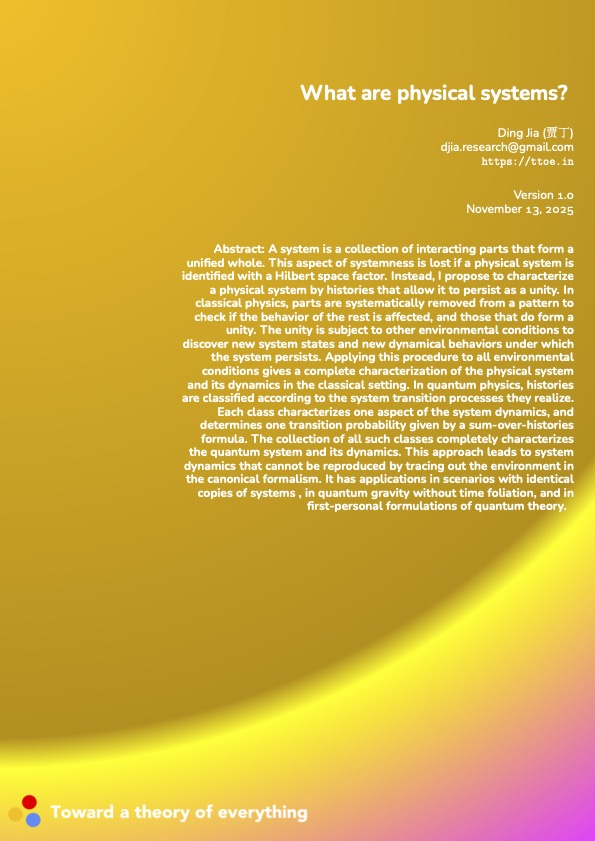What are physical systems?

Description
Title: What are physical systems?
Author: Ding Jia
Abstract: A system is a collection of interacting parts that form a unified whole. This aspect of systemness is lost if a physical system is identified with a Hilbert space factor. Instead, I propose to characterize a physical system by histories that allow it to persist as a unity. In classical physics, parts are systematically removed from a pattern to check if the behavior of the rest is affected, and those that do form a unity. The unity is subject to other environmental conditions to discover new system states and new dynamical behaviors under which the system persists. Applying this procedure to all environmental conditions gives a complete characterization of the physical system and its dynamics in the classical setting. In quantum physics, histories are classified according to the system transition processes they realize. Each class characterizes one aspect of the system dynamics, and determines one transition probability given by a sum-over-histories formula. The collection of all such classes completely characterizes the quantum system and its dynamics. This approach leads to system dynamics that cannot be reproduced by tracing out the environment in the canonical formalism. It has applications in scenarios with identical copies of systems , in quantum gravity without time foliation, and in first-personal formulations of quantum theory.
Version history
- Original version: Article v1.0
Access
Instead of giving the copyright for free to a publisher, I sell this paper myself for profit.
Visit the ResearchGate page for a preview of the paper.
Click the button below to purchase the full paper (the cost covers the current and all future versions of the paper).